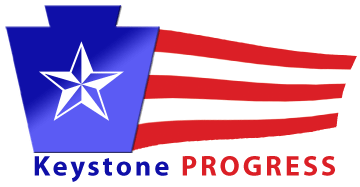By Sharon Ward | Published in the May 1 edition of The Philadelphia Inquirer
| More Resources on HB 2150 The Pennsylvania House is scheduled to debate legislation today that would take a modest step toward closing tax loopholes while making business tax reductions that would cost nearly $1 billion by the end of the decade. Learn more. Fact Sheet: HB 2150 Takes One Step Forward, Two Steps Back Memo: PA House Bill Won't Close Tax Loopholes But Will Make Major New Business Tax Cut Table: How Would Proposed Tax Cuts Impact Funding for PA School Districts Policy Brief: Bill to Close Tax Loopholes Doesn’t Get the Job Done |
For too long, big companies have benefited from Pennsylvania lawmakers’ refusal to close tax loopholes. They have been free to use aggressive avoidance schemes to shield their income from state taxes and shift the cost of public services to families and other businesses.
After close to a billion dollars in cuts to public schools and social services, state lawmakers from both parties are taking another look at this issue. This bipartisan recognition of the problem is welcome.
Unfortunately, one proposed cure may be worse than the disease. State Rep. Dave Reed (R., Indiana) has introduced legislation, expected to be considered today, that would take a modest step toward closing loopholes but also give businesses tax cuts that would cost nearly $1 billion by the end of the decade. Closing loopholes only to open up big budget deficits is not the way to go.
But lawmakers do need to address this issue responsibly. In the three years after the recession hit, 265 profitable Fortune 500 companies managed to avoid paying state taxes on at least half their profits, according to a report by the Institute on Taxation and Economic Policy. Sixty-eight companies on that list — including such Pennsylvania-based companies as Heinz and Comcast — paid no state income tax on profits in at least one of those years.
None of these companies is breaking the law — and that’s exactly the problem.
In Pennsylvania, corporations use legal loopholes to shift income earned here to subsidiaries in tax havens such as Delaware; one modest building in downtown Wilmington is home to 6,500 such shell corporations. These loopholes cost Pennsylvania about $500 million a year, and that leaves the rest of us bearing more of the burden in the form of higher property taxes, underfunded schools, mounting college tuition, and a weakened economy.
Rep. Reed recently noted, “The mere existence of the [Delaware] loophole creates an unfair and unbalanced business environment. A successful business is not based on who can avoid paying the most taxes; it’s based on hard work and a good business model.”
He was right about hard work and good business models. That’s why it’s important to invest in a well-trained workforce and the roads and bridges that make commerce efficient and profitable in the state. The revenue to be gained by closing corporate tax loopholes can help Pennsylvania do that.
The idea that any closed tax loopholes should be offset dollar-for-dollar by corporate-tax cuts is nothing new. The state’s Business Tax Reform Commission first proposed it in 2004. But the commission also recommended unitary combined reporting, a much stronger approach to closing loopholes than Reed offers, along with higher tax rates for partnerships and other businesses that pay Pennsylvania’s very low tax on personal income.
The Reed bill, by contrast, offers all the tax cuts with none of the heavy lifting. It would further reduce investment in good schools, roads and bridges, and public safety, all of which boost the economy.
While some argue that the state’s corporate tax is too high, 85 percent of the corporations operating in the state pay less than $1,000 a year in income taxes — less than is paid by the typical household earning $33,000 a year. A modest reduction in the corporate-tax rate may be achievable, but research shows that tax cuts don’t pay for themselves. And if they force big spending cuts, especially in education, public safety, and infrastructure, they can actually hurt economic growth.
If we level the playing field for all the state’s businesses, companies will thrive because of innovation and a strong marketplace instead of their ability to avoid taxes. And the rest of us will no longer have to pick up the tab for big businesses that are adept at gaming Pennsylvania’s tax system.
Sharon Ward is director of the Pennsylvania Budget and Policy Center.

No comments:
Post a Comment